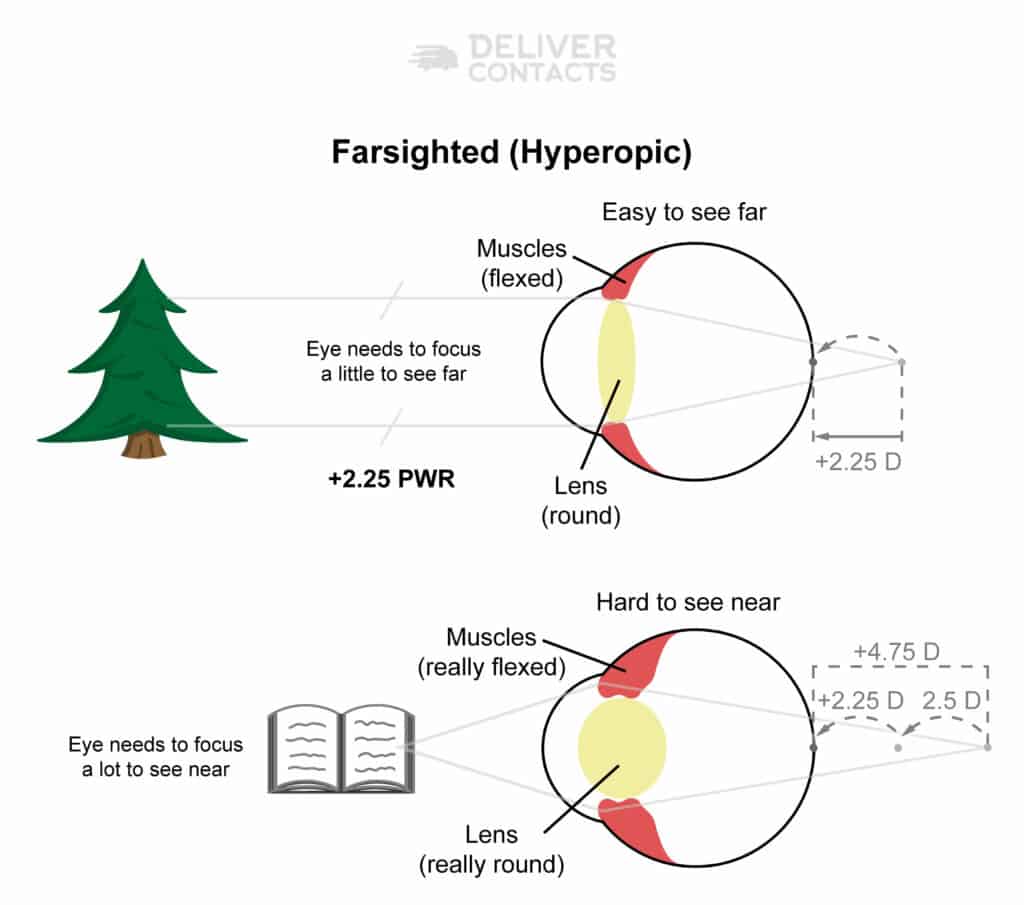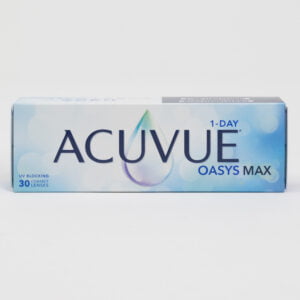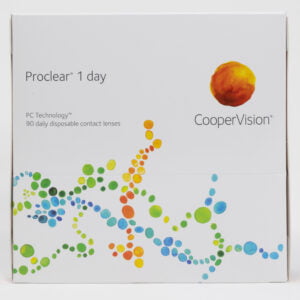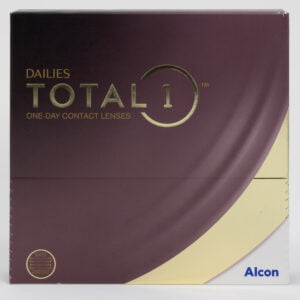Hyperopia/Hypermetropia (Farsighted): Causes, Signs, & Treatment
What is Farsightedness (Hyperopia)?
Hyperopia (also known as Hypermetropia or Farsightedness) is an optical condition of the eye that makes focusing far away difficult, but it makes focusing up close even more difficult.
People who have hyperopia have greater difficulty focusing up close, so they are better (in comparison) at seeing far away, and therefore, are called “Farsighted”.
If you have hyperopia, you might say, “I have far sight. I don’t have near sight, but I do have far sight.” You don’t reference what you struggle with, you reference what you have.
If you struggle to see things clearly far away, that is referred to as myopia, or nearsightedness.

Hyperopia Explained (Video)
How Common is Hyperopia?
According to the National Eye Institute (NIH), approximately 5 – 10% of the U.S. population is affected by farsightedness, making it less common than myopia, but still impacts a large number of people.
Symptoms and Signs of Having Hyperopia
Hyperopia (farsightedness) can be difficult to detect. The reason it tends to be hard to detect is because the eye often has the ability to focus through its farsightedness and see well, especially for the young.
You may think that if a person can see then all is well, but that is not entirely correct. People who are farsighted have to focus continuously, and especially hard up close.
Perfect eyes can relax their focus to see far, and work slightly for near. Farsighted people either work at a normal level for far distance vision, but have to strain extremely hard for near vision.
This extra work could cause headaches, poor concentration when reading, crossed eyes, or a lack of interest in near studies.
Stereotypes of Children with Hyperopia
There is some correlation with farsighted children being stereotyped as “bad students” because they have difficulty with concentration skills. If their eyes are physically focusing, and the brain controls this physical focusing of the eye, then the brain is going to have a harder time focusing mentally on what was just read.
Even if they seem to see like a hawk, it’s recommended to get an eye exam to check for this non-obvious farsightedness.
Is Hyperopia Dangerous?
Hyperopia does not make a person go blind, but left untreated in the younger years could have long term amblyopic consequences. Amblyopia is a neuronal (brain) condition of limited visual acuity created when clear images are not sent to the brain during a critical time of growth.
The biggest problem associated with hyperopia is the difficulty that it creates with focusing physically and mentally, especially on near targets. And sometimes, a person struggling with this may be seen as having difficulty with learning, when all they need is an optical correction.
Since hyperopia is easily missed and has such serious ramifications on self image, education, and confidence, it is important to diagnose hyperopia early when it exists.
What Causes Farsightedness?
When light enters the eye from a distant target, it is supposed to converge to focus on a pinpoint spot on the retina called the fovea. If light, instead, focuses behind the fovea, we refer to it as hyperopia (or farsightedness).
This imperfect focus creates a need for the eye to work harder to see both far and near. Sometimes the extra work is mild, sometimes extreme. It just depends on how far the focal point is off in the first place.
Children are often born farsighted (at least a little bit), but grow out of it as the body and eye grows in length. In longer-term cases of farsightedness, however, the eye doesn’t grow long enough to bring the fovea back to the focal point, and the eye remains farsighted.
Is Hyperopia Hereditary?
Yes, hyperopia is hereditary. In fact, if either parent has farsightedness, then the chance of their children will have hyperopia is greater.
How is Hyperopia Treated?
The off-point of focus of the eye in those with hyperopia needs to be moved closer to the fovea to alleviate the strain to focus. This is done by converging the light, and bringing the point of focus toward the fovea.
Glasses and contact lenses are the two most common ways to move the point back to the fovea.
For example, if the point is 2.25 millimeters behind the fovea, then the point needs to be moved forward 2.25 millimeters to establish clear focus. However, we wouldn’t use the terminology of “forward 2.25 millimeters”, instead, we would say “+2.25 Diopters Sphere (DS)”. Light is not measured in units of length, it is measured in diopters. Since the point has to be moved forward (therefore converged), we would use the “+” symbol (read the “plus” symbol), and give glasses or contacts with the power of +2.25 DS.
Can Hyperopia be Prevented?
Hyperopia is genetic. There isn’t anything that you can naturally do to make it appear or prevent it from coming.
You may like to rationalize that, “if I work my muscles more, the extra work will become easier.” However, the muscles that are used for focusing are smooth muscle, not skeletal muscle. Skeletal muscle can hypertrophy and get stronger, but smooth muscle does not.
An eye that becomes familiar with overworking does become accustomed to the extra work, but it means that the required amount of focus will be less. It’s kind of like this… if you have to carry a fifty pound backpack around with you all the time, you may get accustomed to the extra weight, but the backpack is not getting lighter.
Do Wearing Glasses or Contact Lenses Help with Farsightedness?
Wearing glasses or contacts doesn’t cause the eyes to get worse or better, they just move the focal point into position so the wearer can see better or easier.
However, wearing the correct prescription during the critical growth years may prevent amblyopia from setting in.
Popular Lenses Compatible with Farsightedness
-
Product on sale
 ACUVUE® OASYS MAX 1-Day (30 pack)Original price was: $60.50.$49.99Current price is: $49.99.
ACUVUE® OASYS MAX 1-Day (30 pack)Original price was: $60.50.$49.99Current price is: $49.99. -
Product on sale
 Proclear 1-Day (90 pack)Original price was: $83.50.$74.99Current price is: $74.99.
Proclear 1-Day (90 pack)Original price was: $83.50.$74.99Current price is: $74.99. -
Product on sale
 Dailies Total1® (90 pack)Original price was: $130.05.$104.99Current price is: $104.99.
Dailies Total1® (90 pack)Original price was: $130.05.$104.99Current price is: $104.99.
Which Brand of Contact Lens Should be Used for Hyperopia?
All major contacts brands make lenses for hyperopia.
We recommend daily disposable for safety and simplicity if your budget allows, but what will ultimately determine your choice of brand will likely be your lifestyle and your discussion with your eye doctor.
Once you have your prescription, shop online with us for the top brands at the lowest prices with free delivery.
Should I Get Glasses or Contacts for Hyperopia?
If you have hyperopia (are farsighted), then you should either wear glasses or glasses in combination with contact lenses.
Contact lenses should not be worn exclusively, they have inherent risks that can be avoided by letting the eye breathe. If you don’t have glasses, then you may not give your eye enough oxygen.
Contacts should always be worn along with the use of glasses. So, if you must get one or the other, get glasses first. Just know that you may have different prescriptions for contacts and glasses.
Sometimes, contacts can be a better choice to keep the image sizes the same so binocular (two eyes being used, but perceiving only one image) is easier.
What are the Differences Between Glasses and Contact Lenses for Hyperopia (Farsightedness)?
Glasses
With glasses, plus lenses create magnification. In other words, when you look through the plus lenses of glasses, the world gets bigger.
| Fun Tip: You can tell if someone is farsighted by looking at the size of their eyes when they have their glasses on. If their eyes look bigger, then they are wearing plus lenses, so they are farsighted. |
Therefore, when someone puts plus glasses lenses on for the first time, everything will be bigger. When things look bigger, they also appear closer. New glasses wearers may experience this as disorienting and may even feel shorter because the ground appears closer.
The more the glasses are worn, however, the faster this disorientation goes away. The brain will adapt with experience.
Contacts
In contact lenses, this magnification does not occur because the contacts are worn directly on the eye. The main concern with contacts is the increased risk of infection and injury (which can be limited greatly with proper care and wear) that glasses do not cause.
Article Sources
National Eye Institute, Farsightedness. https://www.nei.nih.gov/sites/default/files/health-pdfs/Farsightedness.pdf. Accessed November 17, 2022
Need Consistanly Cheap Contacts?
DeliverContacts.com always guarantees you are paying low prices, every time you buy. We will never play games with our pricing or take part in manipulative discounts. Just consistently cheap contacts, forever.
Give your box a search below and see for yourself! 100% Free shipping and returns on all products!



